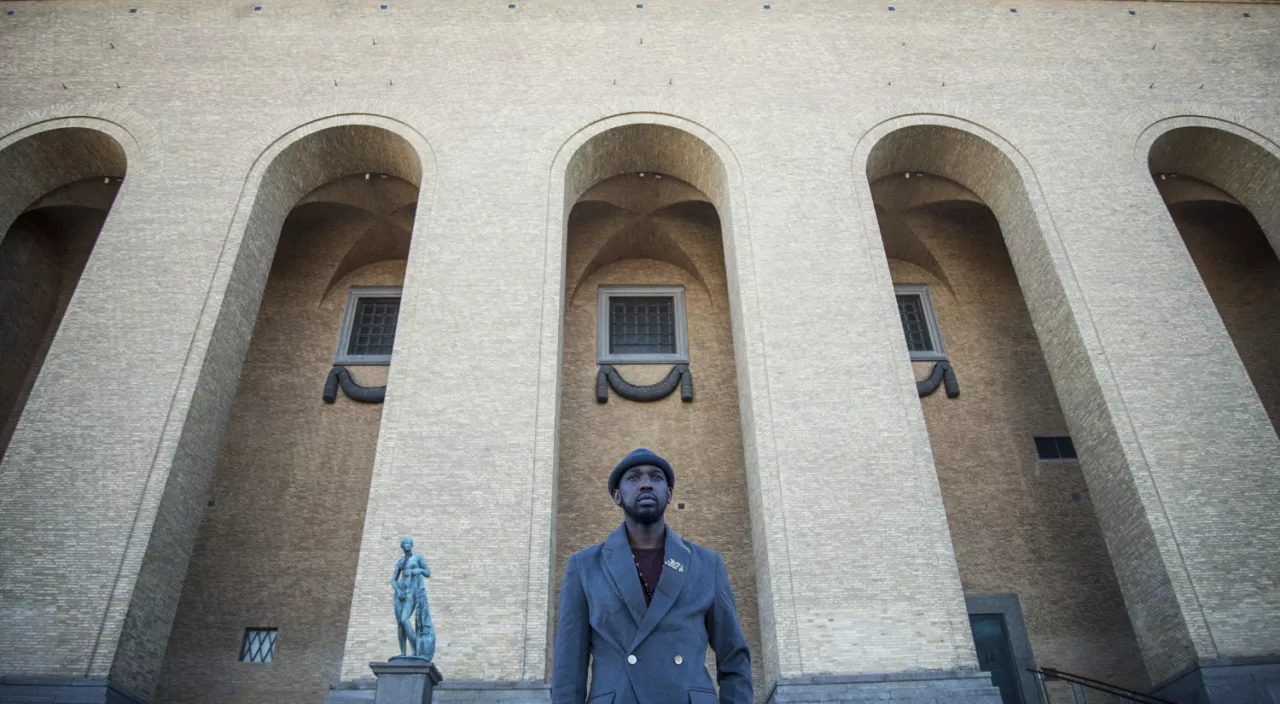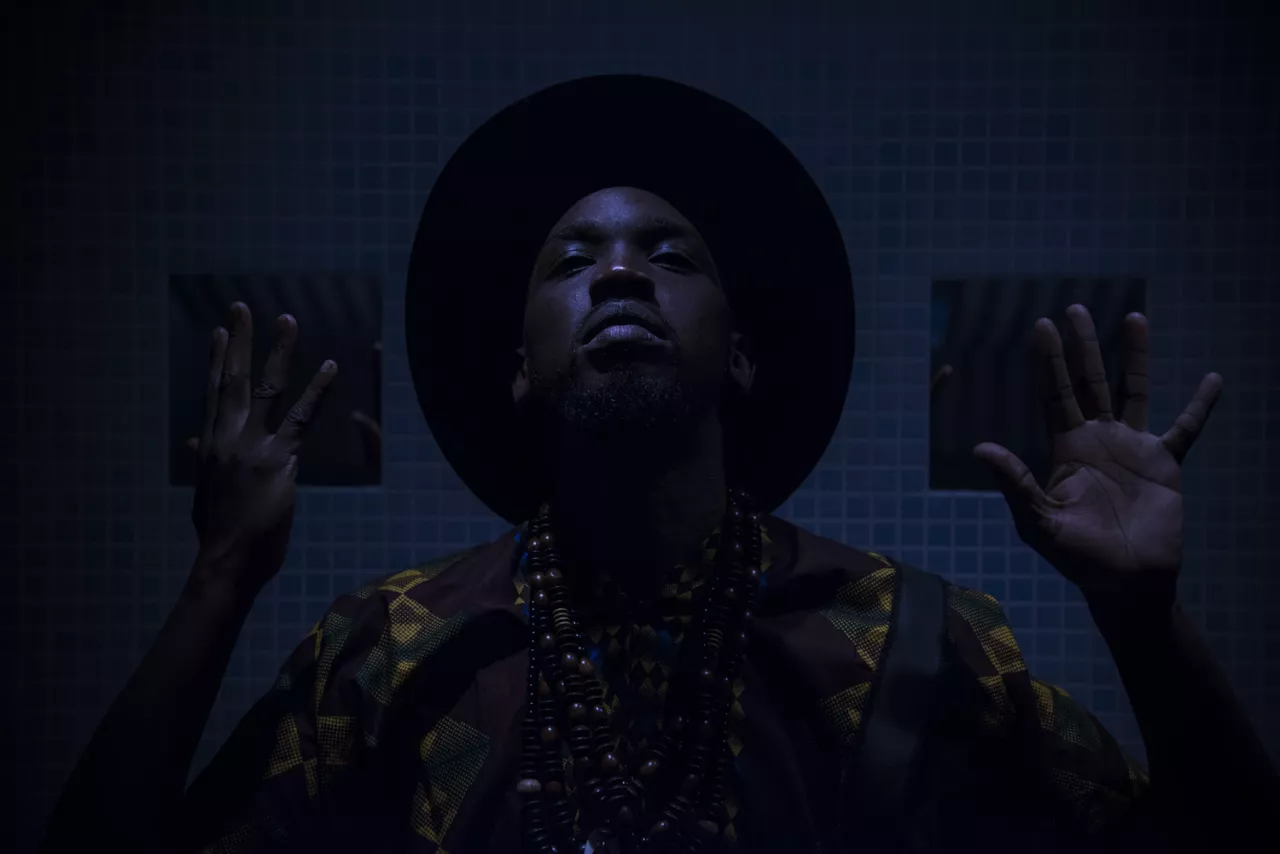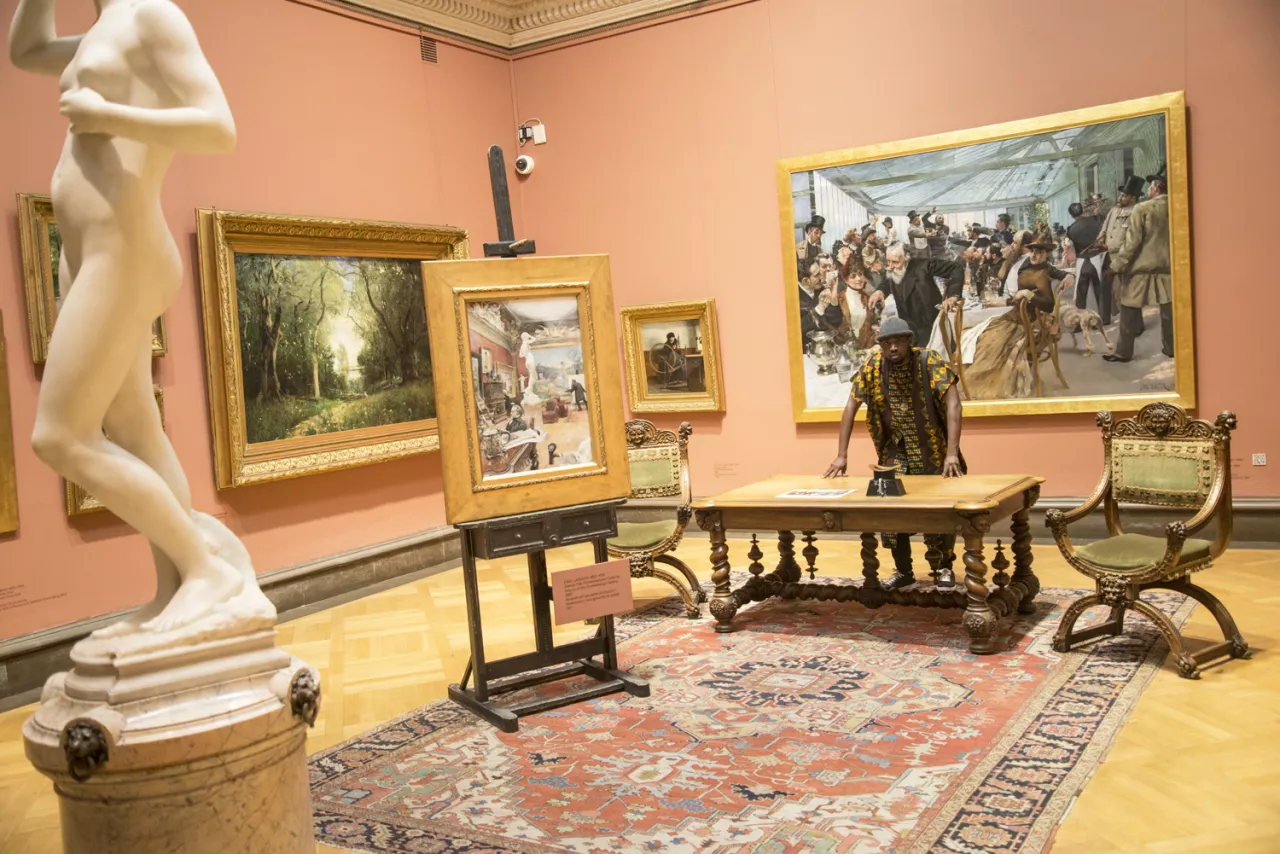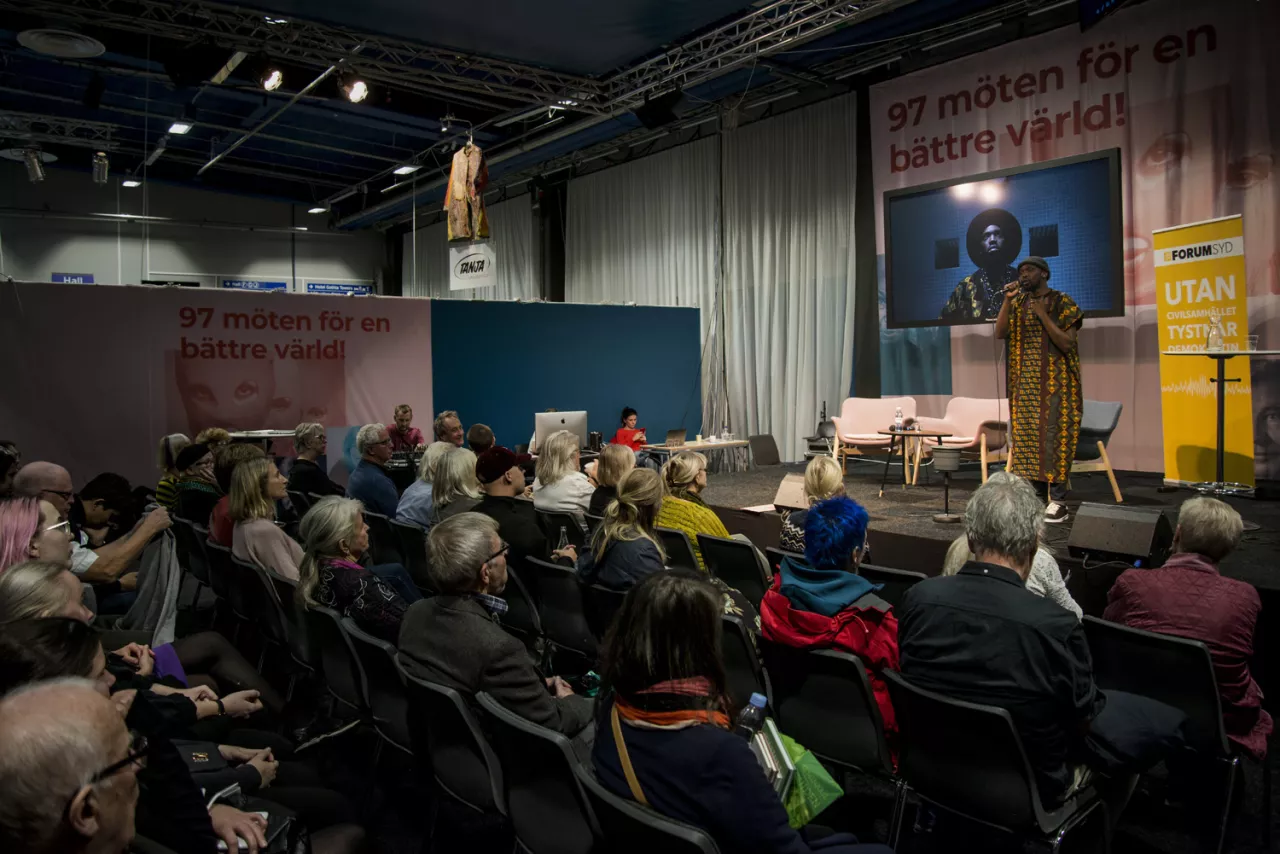King of Poetry
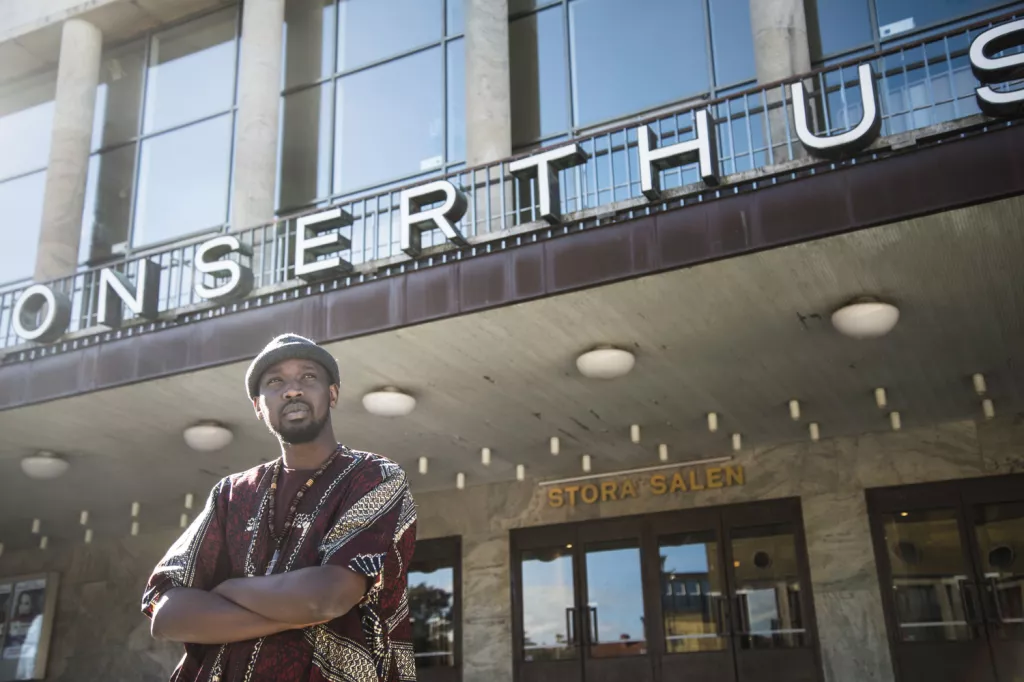
The leaves are fiery red, the air is refreshing and the sun is giving its last rays of light before Sweden turns into its typical winter slumber. In other words - an unusually fine day for Göteborg. A city that is generally associated with rain and grayness among Swedes. For Mufasa, a much appreciated reception who expected darkness and snow storms travelling this far north.
The trip has been done on invitation of Forum Syd to perform at “Bokmässan” on current issues in Kenya. A book fair that has grown to be the largest cultural festival in Sweden. The old industrial city Göteborg, with a population of about 600 000 is the second largest and famous for being the birthplace of Volvo and international artists such as Jose Gonzales and The Knife.
Gender roles, tribalism, corruption and how how bad governance affect the daily life of Kenyans is usually in the centre of Mufasa’s performances. His talent is using poetry to express the injustices many Kenyans experience but not has been able to say has made him a rising star in Kenya. Over a few years he has grown into popularity leaving, but not entirely, the underground clubs to do big performances at human rights events, festivals and TV-shows. Mufasa performances makes him best described as a spoken word artist and activist. A title he himself doesn’t identify with.
- Words are power and the word activist have lost it's meaning. The government has made activists to be associated with troublemakers who want to put down the regime and ruin society. That’s not my intentions, but we need to change to move forward.
Free speech under attack
The democracy in Kenya faced a trial during the elections in 2017; the opposition condemned the results as a farce and was followed by violent protests which the government refused to surrender to. More than 30 people died as a result of the police violence. There was also a massive crackdown on civil society leading to closures of key organisations who were deemed to speak against atrocities committed by the government. The media was not spared either and the three biggest TV stations were shut down for more than a week for broadcasting an opposition event the government had disagreed with. Despite the dramatic events after the election Mufasa has a positive look on the future.
- We will see change happen in Kenya. It’s in the air. Before we knew that authorities did lousy jobs sometimes, today we can talk openly about it. And that is our job. The role of artists is to channel and pin point what people feel but can’t express due to taboos or even their own blindness to norms.
The governments control is felt everywhere, even though perhaps not as direct as the violence of the police during election times.
- Artists who criticize the government will feel it economically. Companies associated with the government, and they are many, will stop contracting thewith the artists if you are vocal about what the authorities do wrong.
King of poetry
It was already in elementary school when the words started to find Mufasa. His classmates teased him for his talents calling him the king of poetry.
- But my mother still asks me today what I am going to be when I grow up. It is hard for her to accept that I can live on my artistry. She had preferred me doing something more traditional as a lawyer or a doctor.
But my mother still asks me today what I am going to be when I grow up. It is hard for her to accept that I can live on my artistry. She had preferred me doing something more traditional as a lawyer or a doctor.
After a short stint of being disconnected Mufasa comes back to life and brings out the greatest smile. He is going to say something but is interrupted by the first person of many who wants to take a selfie.
Organizing for change
- Tribes were everything before. It was your community and identity. With urbanization and modernity we have created new roles and reinvented ourselves. We are the new Kenya. Modern. We’ve made huge progress in the discussions of whom we are and where we want to head.
Mufasa lives today in Nairobi, 400 kilometers away from his childhood, his classmates teasing and his mother’s disappointments. Through the organization Creative Spills Mufasa is also active in supporting and encouraging other Kenyans to turn to artistry to find the courage of breaking taboos. Creative Spills travels all over Kenya to give people the tools to express their feelings and hopes. A voice of their own.
- We can’t create change alone, we need each other and we need communities to do it step by step together. Nothing sustainable happens over a night.
That the Kenyan art scene is growing is far from something Mufasa takes for granted. The next thing ahead for him is organizing the annual Spoken Word Slam contest that provides an important stage for emerging artists to grow into fame and popularity while raising critical social issues.
- We confront things such as the wide spread corruption. We are less comfortable these days. We challenge racism and the divide of tribes in the Kenyan society. Art is in the forefront to create a future we can all live with.
A great fit for Forum Syd’s Wajibu Wetu programme tries to find actors outside of the traditional development cooperation sector and support actors such as Creative Spill. Artivism, using art to raise social issues within society is fast emerging as a powerful transformative tools for social change. While organisations are threatened to be silenced by authorities, the space for bloggers and artists remain to be a lot freer.
Other recent articles
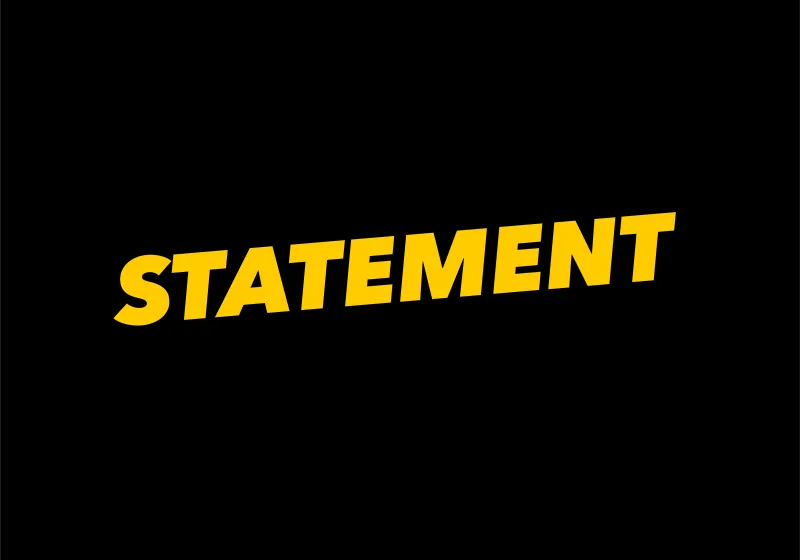
Statement by The Eastern Partnership Network on Georgian “Transparency of Foreign Influence" law
The Eastern Partnership Network strongly condemns the re-introduction of the contentious “Transparency of Foreign Influence” law by the Georgian Dream Party. We call on the Georgian government to...
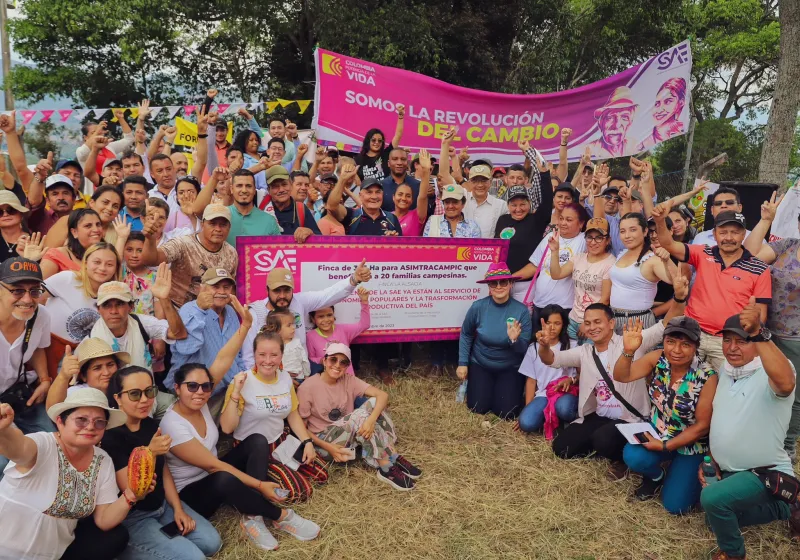
Aremos Paz: ploughing furrows of peace in Colombia
After five years the Aremos Paz project have come to an end. Read more about how the project have supported rural communities and the reincorporated population in rural areas affected by the conflict...
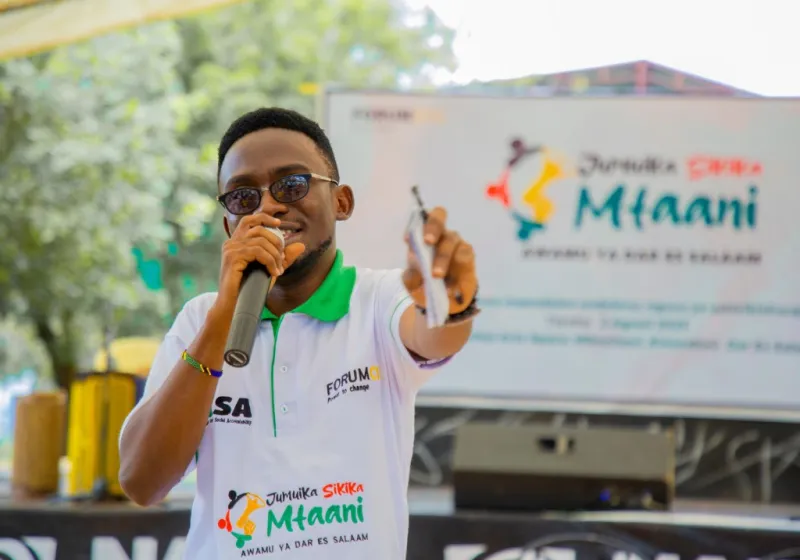
12 times civil society changed the world in 2023
Strengthening press freedom, dismantling structural discrimination, eradicating harmful practices, maintaining a helpline despite state crackdown, preserving natural resources, these are just some of...
